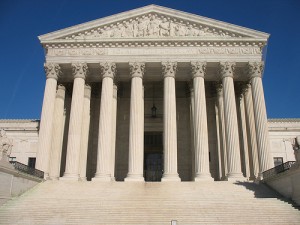Supreme Court Rejects Judge Gorsuch’s View of Special Education Law
Posted
27 Mar 2017 in Case Notes, Commentary, Monday Morning Review
The Supreme Court’s decision in Endrew F. v. Douglas County School District was bad timing for Supreme Court nominee Judge Neil Gorsuch.
The Supreme Court held unanimously that public school districts must offer students with disabilities an individual education plan (IEP) “reasonably calculated to enable a child to make progress appropriate in light of the child’s circumstances.”
The Court rejected the Tenth Circuit’s holding that an IEP must merely confer “some educational benefit” that is “more than de minimis.”
This ruling came down while Judge Gorsuch was testifying before the Senate Judiciary Committee. Judge Gorsuch was the author of a 2008 opinion





